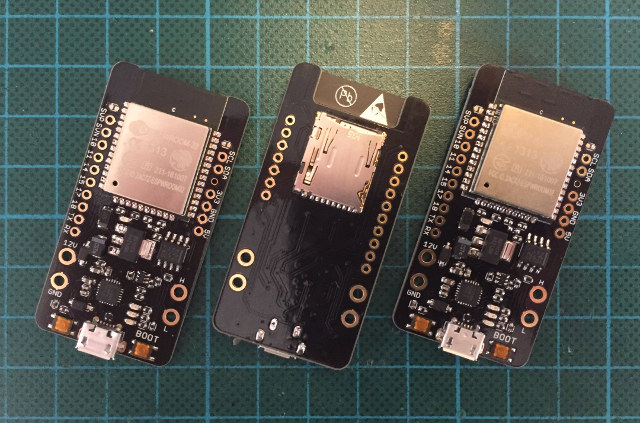If you want a WiFi + BLE board to play with CAN bus, one option is to go with the versatile Olimex ESP32-EVB Board, but if you need something more compact CAN32 board might be worth a look as the board is specifically designed for projects and testing of the ESP32 in a CAN-BUS environment.

CAN32 board hardware specifications:
- Wireless module – Espressif Systems ESP32-WROOM WiFI + Bluetooth LE module
- External storage – micro SD slot
- CAN Bus chip – Texas Instruments SN65HVD230DR CAN-BUS transceiver with sleep mode
- Expansion
- Unpopulated headers exposing: SVP/SVN, GPIOs, I2C, UART, GND, 3.3Vm 5.0V
- 4 larger vias for CAN H and L, 12V (max 15V), and GND
- Debugging / Programming – micro USB port via Silicon Labs CP2102N USB to UART
- Misc – C&K soft-touch low-profile buttons for reset and boot; 4x LEDs for power, ESP, UART Tx/Rx
- Power Supply
- 5V via micro USB port
- Optional 12V (up to 15V) via vehicle battery
- Texas Instruments <15V regulator for power from USB and/or vehicle voltage
- 800mA LDO providing power up to 3.3V @ 500 mA to external devices
- Dimensions – TBD
Schematics don’t seem to be available, and the developer mentions ESP32 CAN BUS protocol is still under development with working examples available on Github. The board comes pre-loaded with an Arduino Wifi-Scan example sketch.
CAN32 can be purchased on Tindie for $39 plus shipping. That’s a bit more expensive than the Olimex board selling for 26 Euros (~$32 USD). The latter is equipped with Microchip MCP2551 CAN transceiver which appears to have similar features and price ($1) as the TI chip found in CAN32.

Jean-Luc started CNX Software in 2010 as a part-time endeavor, before quitting his job as a software engineering manager, and starting to write daily news, and reviews full time later in 2011.
Support CNX Software! Donate via cryptocurrencies, become a Patron on Patreon, or purchase goods on Amazon or Aliexpress





Hi,
what’s the olimex model ?
@agumonkey
Check the invisible 1st paragraph where the invisible 1st link is hidden 😉
15V limit is too small for lead battery usage with alternator like a car.
If you have an misconnection on wirring alternator / alternator reguator fryed or bad battery, spikes over 15V can happen.
18-24V tolerance is more secure